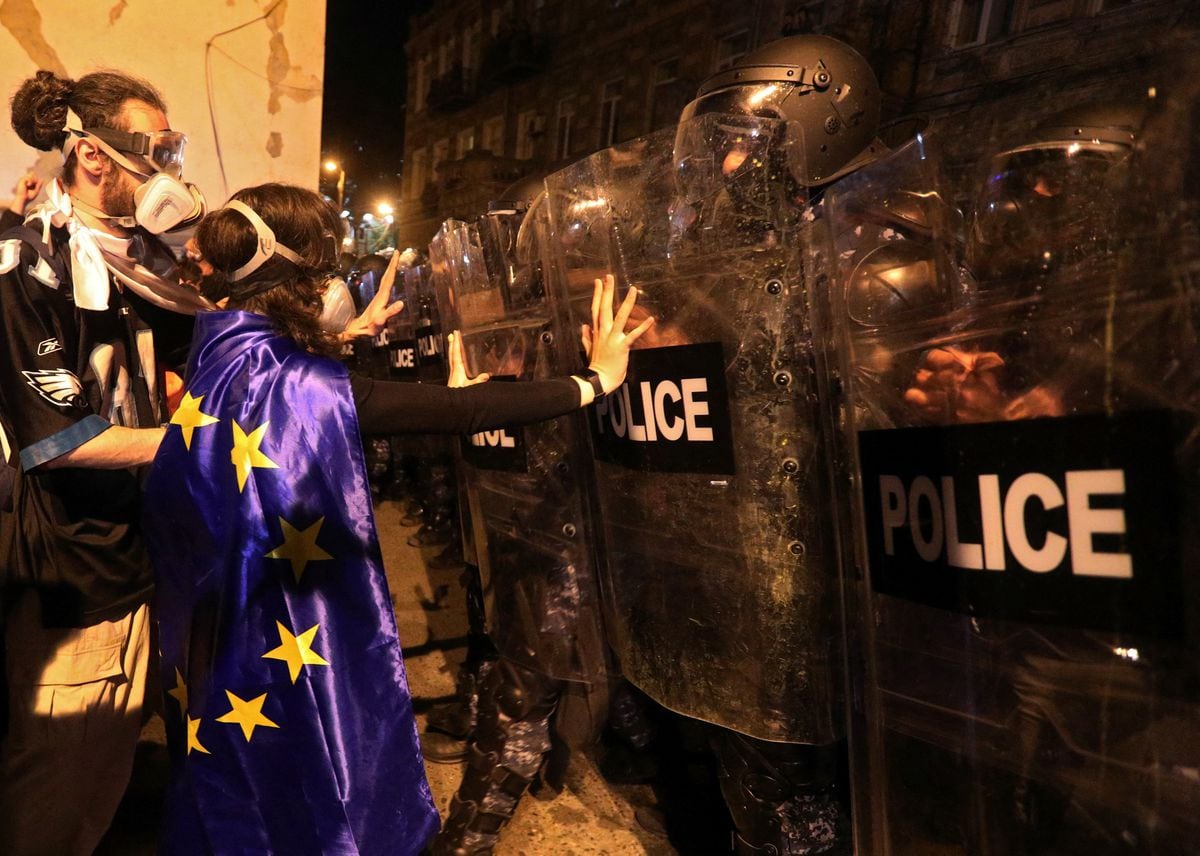The EU warns that this rule promoted by the Government, which threatens NGOs and projects with external financing, is incompatible with accession negotiations. Thousands of Georgians have taken to the streets these days against the approval of legislation inspired by the Russian one.
According to the text, any organization that receives more than 20% of its financing from abroad must register as an “agent of the interests of a foreign power” and the Georgian Ministry of Justice will carry out inspections on them every six months. The opposition, protesters, and numerous social organizations have criticized the law as an attempt to transpose the Kremlin's legislation on "foreign agents," which has ended the critical panorama in Russia. The demonstrations around the assembly building have brought together more than 10,000 people every night since Monday and have culminated in more than two dozen arrests and several injuries due to police repression. It is seen as a direct attack on the political and human rights organizations that monitor power, and that, given that the opposition is divided and weakened, have become the main obstacle for the party. The country's president, Salome Zurabishvili, has become one of the spokespersons for discontent. The EU does not understand the Government's turnaround after the boost that came with the granting of candidate status for a Member State granted last December. “I will be clear: the draft law is not consistent with Georgia's European aspirations,’ warned the president of the European Council, Charles Michel, last week. The party has won every election in the last decade, thanks to a more social policy and a stance of less confrontation with Moscow than that of Saakashvili. However, in recent years, it has abandoned its center-left tendency and has opted for an increasingly ultra-conservative discourse, for example, eliminating the quota of a minimum of 25% of women on party lists or by passing laws against “LGTBI propaganda” and “gender ideology.’

